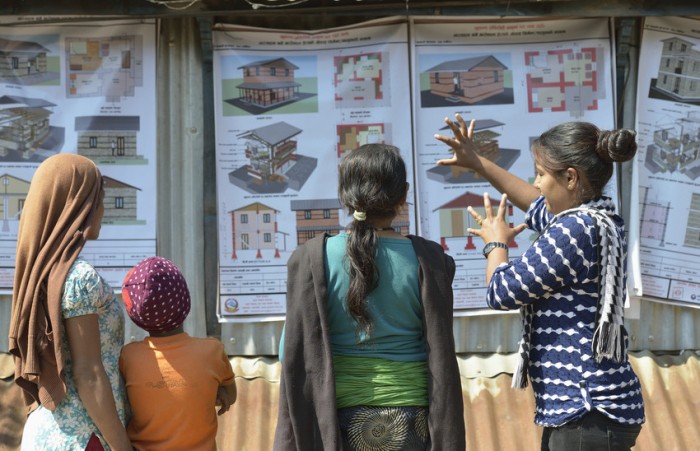PRESS RELEASE

A volunteer for ACT Alliance member DanChurchAid explains to neighbours their options for constructing houses to replace the homes they lost in the 2015 Nepal earthquake. Photo Credit: ACT/Paul Jeffrey
The World Humanitarian Summit has identified key opportunities that exist for more effective collaboration among diverse stakeholders but clear implementation strategies are now needed if we are to better deliver to affected populations in crises, ACT Alliance has said.
The alliance, an international faith-based humanitarian and development network of 140 members working in over 100 countries, had a strong delegation of attendees at the Summit which took place on 23-24 May in Istanbul.
ACT Alliance General Secretary John Nduna, welcomed the many statements from member states, fellow NGOs and other stakeholders and at the Summit echoing the commitments the alliance has made towards improved humanitarian response, particularly those relating to increasing the involvement of local and national responders in crises.
“We are pleased that the WHS has seen such support and leadership particularly around the Grand Bargain which saw commitment to increasing funding to local and national responders as directly as possible, and a real understanding of the importance of cash based systems in meeting people’s needs,” said Nduna. “Local and national responders are the parties that have the closest access to communities, and as ACT Alliance we have also committed to significantly increasing the proportion of our members’ humanitarian funding that goes directly to local and national members and their partners, for both humanitarian response and emergency preparedness.”
“The Summit has highlighted the opportunities for collaboration among actors for a more effective humanitarian response, and now we as an international community must transform the discussions at this event beyond words into action, in the form of clear implementation and monitoring strategies.”
ACT Alliance, which through its global membership responds to around 25 emergency situations around the world each year from natural disasters to conflict-related crises, also welcomed views across stakeholders at the Summit supporting the preservation of humanitarian principles and International Humanitarian Law, with Nduna saying: “The WHS has highlighted the importance of maintaining humanitarian action and recognising the uniqueness of humanitarian action in and of itself.”
- For more information contact Estelle Marais, Head of Communications at Estelle.marais@actalliance.org tel: +41 79 358 3171